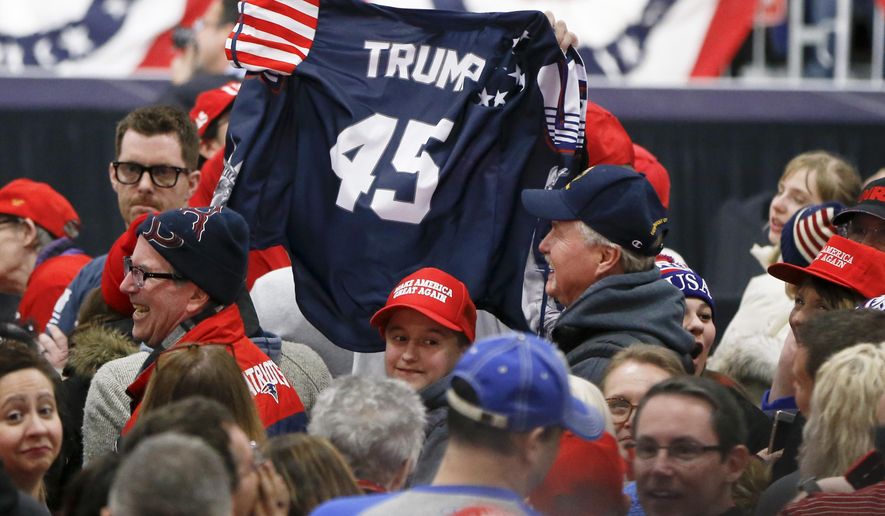The Supreme Court on Thursday rejected a Minnesota law banning voters from wearing political apparel to the polls, saying it was too draconian in stifling Americans’ First Amendment rights.
The 7-2 decision said it may be possible for states to restrict stridently political T-shirts and buttons, but the justices said Minnesota didn’t justify why its law needed to be so broad.
Minnesota’s ban covered any “political badge, political button, or other political insignia” a voter might wear. Andrew Cilek, a state voter, challenged the law after he was told he couldn’t vote in 2010 because he was wearing a T-shirt with the emblem of a local tea party group and had a button asking for poll workers to check his ID.
Chief Justice John G. Roberts Jr., writing the majority opinion, said the law left it up to poll workers to decide what was political, creating the potential for conflicting or mischievous decisions over whether something is political. He wondered whether someone wearing a Boy Scout uniform would have to cover it up.
“A rule whose fair enforcement requires an election judge to maintain a mental index of the platforms and positions of every candidate and party on the ballot is not reasonable,” the chief justice wrote.
Mr. Cilek said the ruling meant free speech and the Constitution prevailed in his legal fight.
“It’s ridiculous that the state would dig in its heels to the point we had to take them to the highest court in the nation,” he said. “Well, we showed that our right to free speech doesn’t stop at the polling place. Our Framers would be proud.”
The lower courts had sided with the state, which argued the law was meant to avoid campaigning and disturbances near the ballot box.
Thursday’s ruling overturns that decision.
Justice Roberts said they weren’t striking down other state laws, saying there may be room for states to impose reasonable restrictions that can meet constitutional muster.
More than a dozen states have similar laws on the books, which aim to keep polling places from turning into free-for-all partisan battle zones, with campaigns engaged in sign fights, chant wars and the like.
Justice Roberts pointed to California and Texas, where the state laws specify apparel cannot display a candidate’s name or advocate for a measure on the ballot.
“We do not suggest that such provisions set the outer limit of what a State may proscribe, and do not pass on the constitutionality of laws that are not before us,” he wrote. “But we do hold that if a State wishes to set its polling places apart as areas free of partisan discord, it must employ a more discernible approach.”
But Justice Sonia Sotomayor dissented, in which Justice Stephen G. Breyer joined, arguing Minnesota’s Supreme Court should have been the one to outline what constitutes “political” apparel, instead of the high court flat-out ruling the law unconstitutional.
“Especially where there are undisputedly many constitutional applications of a state law that further weighty state interests, the Court should be wary of invalidating a law without giving the State’s highest court an opportunity to pass upon it,” she wrote.
Daniel Weiner, senior counsel at the Brennan Center, which had filed a friend-of-the-court brief siding with the state, said although the court found Minnesota’s law went too far, it reaffirmed that states can bar certain messages.
“Notwithstanding the other aspects of its decision, the court’s acknowledgment of the state’s interest in voter protection is a win for our democracy,” he said.
David Bodney, a First Amendment lawyer, said the court struck a balance between the right to vote and the right to engage in political discourse.
“All nine justices agreed that polling places are special places, and that government can regulate speech more freely to keep them free from the ’clamor and din of electioneering,’” he said. “But when government regulates speech inside a polling place, according to seven of the justices, it must do so reasonably.”
• Alex Swoyer can be reached at aswoyer@washingtontimes.com.




Please read our comment policy before commenting.